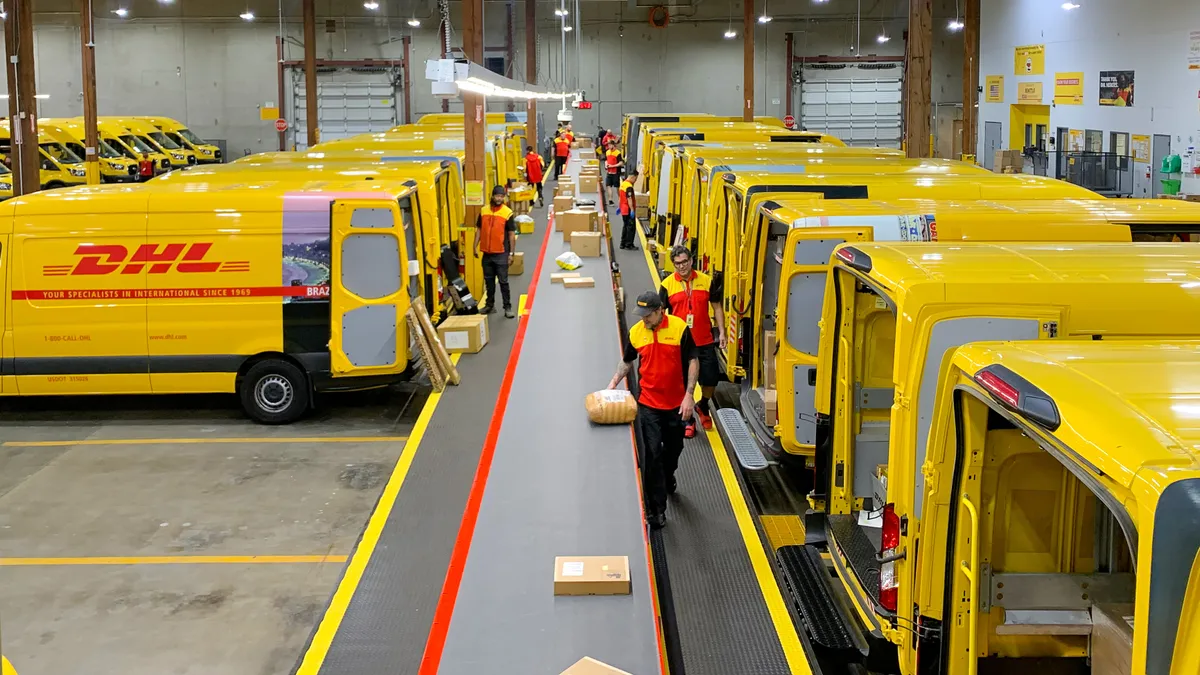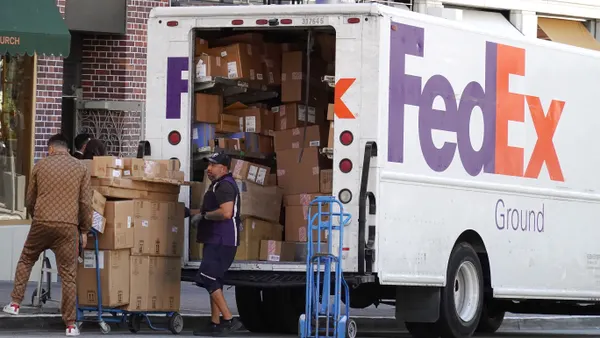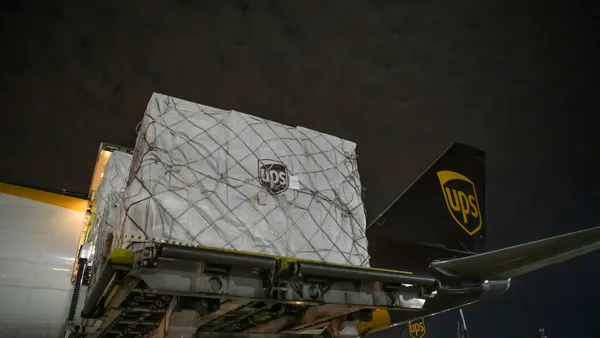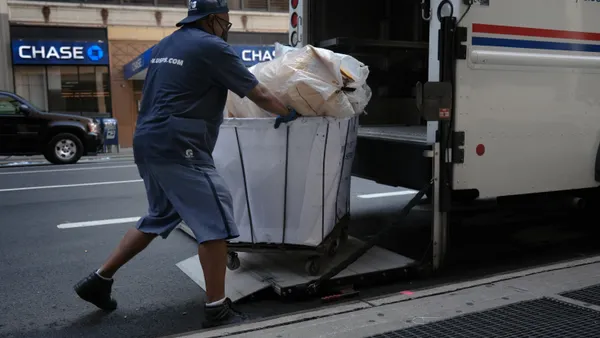An unassuming gray building in Seattle’s Industrial District is home to a logistics hub that helps connect shippers and customers around the world in one to three days.
DHL, which specializes in international and cross-border shipments, has a 60-truck fleet and a team of nearly 80 workers at the Express Service Center dedicated to the safety, speed and accuracy of last-mile deliveries.
Supply Chain Dive toured the Seattle facility last month for a firsthand view of how fashion merchandise, electronics and more move through the warehouse and DHL’s broader network. Here’s what we learned.
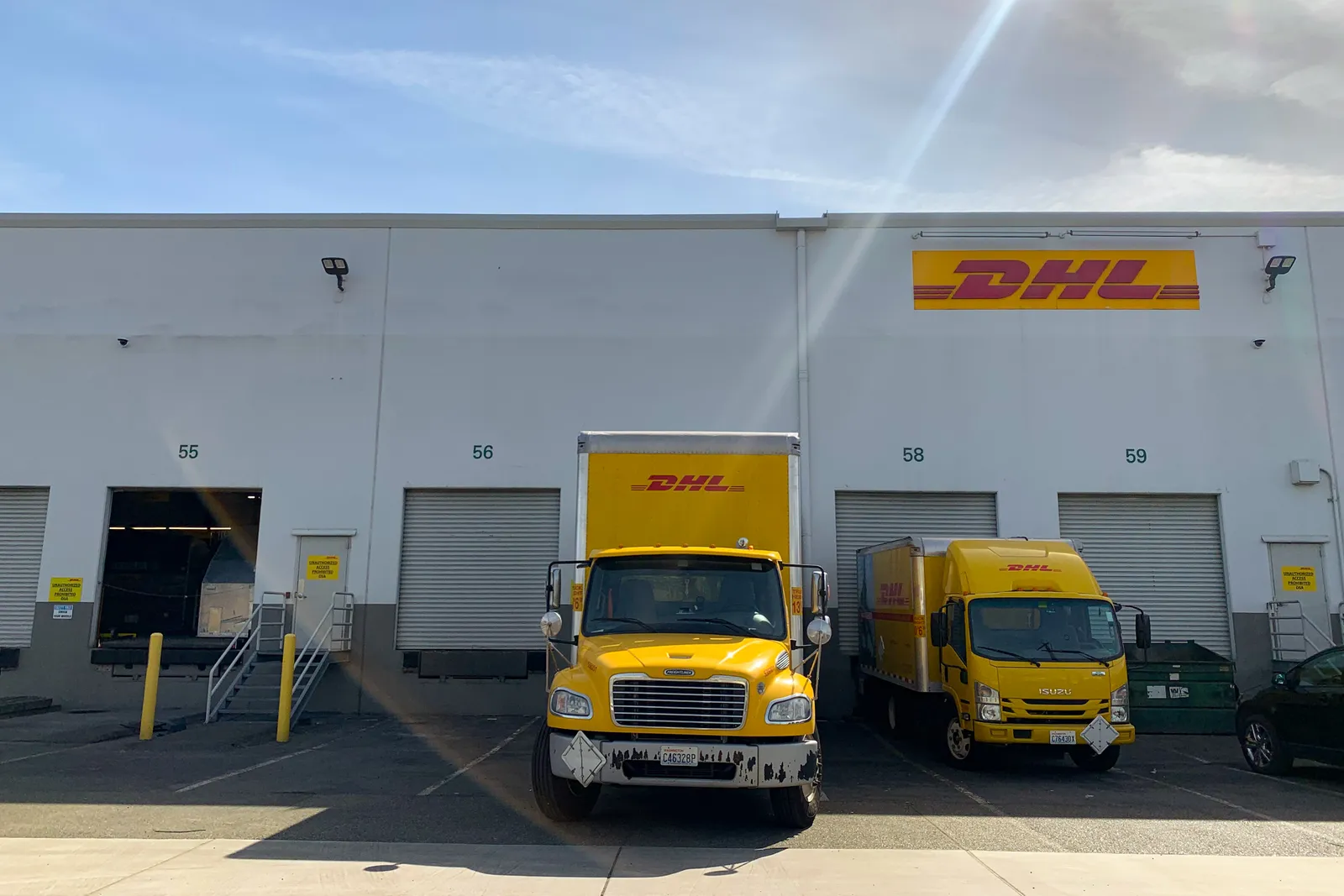
Ten miles by truck from the airport
Many shipments arrive at the DHL facility from Seattle-Tacoma International Airport, where the company’s freighters fly to and from Los Angeles International Airport throughout the week, according to flight tracking software FlightRadar24. The integrator also operates flights from Seattle to Cincinnati/Northern Kentucky International Airport.
Unit Load Devices, which serve as small shipping containers for planes, are unloaded from the freighters and then trucked about 10 miles north to the Seattle service center.
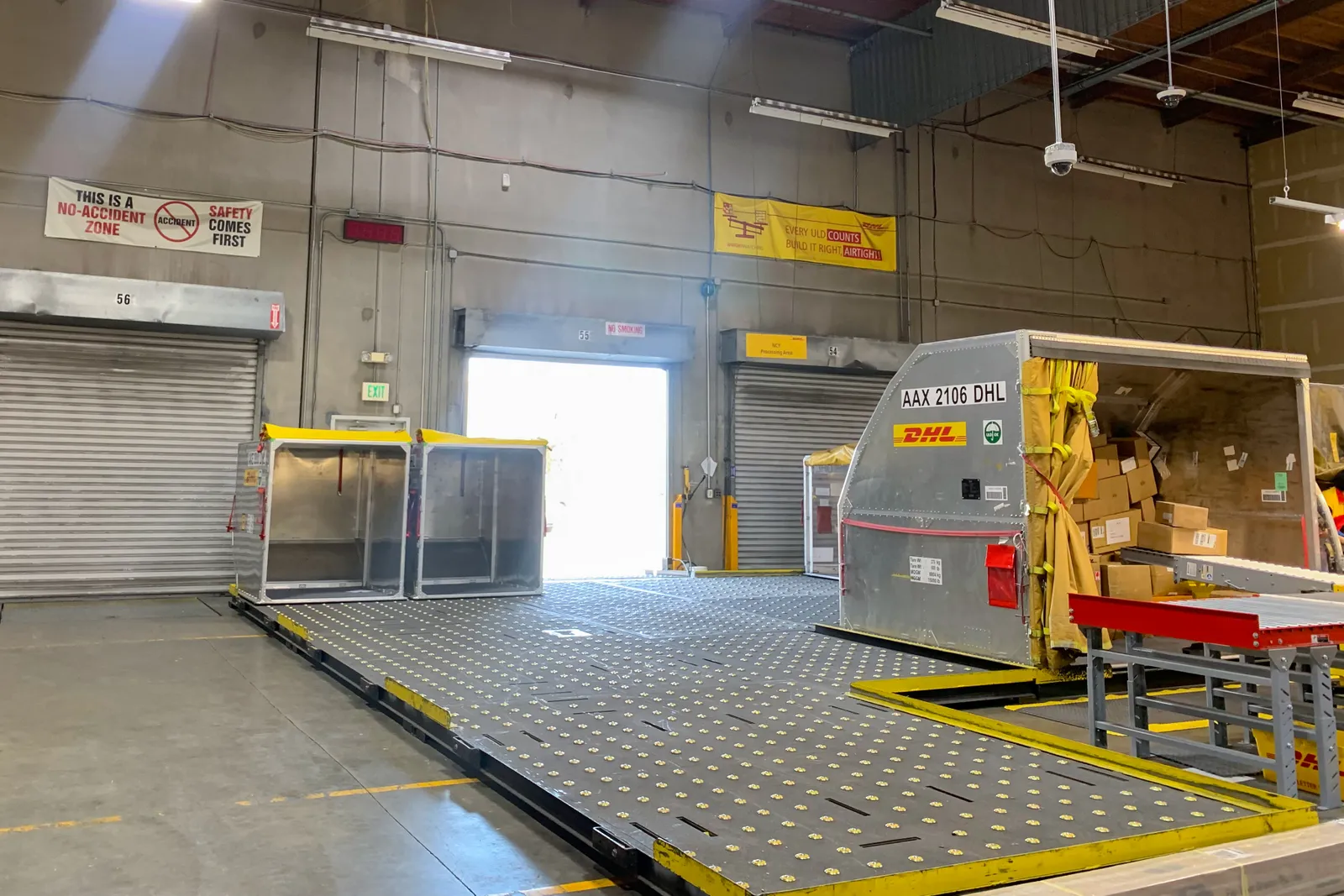
Into the warehouse and onto the conveyer belts
Once the trucks arrive at the facility, the ULDs are moved into the warehouse where employees unload and place the packages on a moving conveyor belt.
The carrier’s global network scale enables the facility, which primarily handles time- and day-definite international shipments, to achieve its one- to three-business-day shipping times, DHL spokesperson Robert Mintz told Supply Chain Dive.
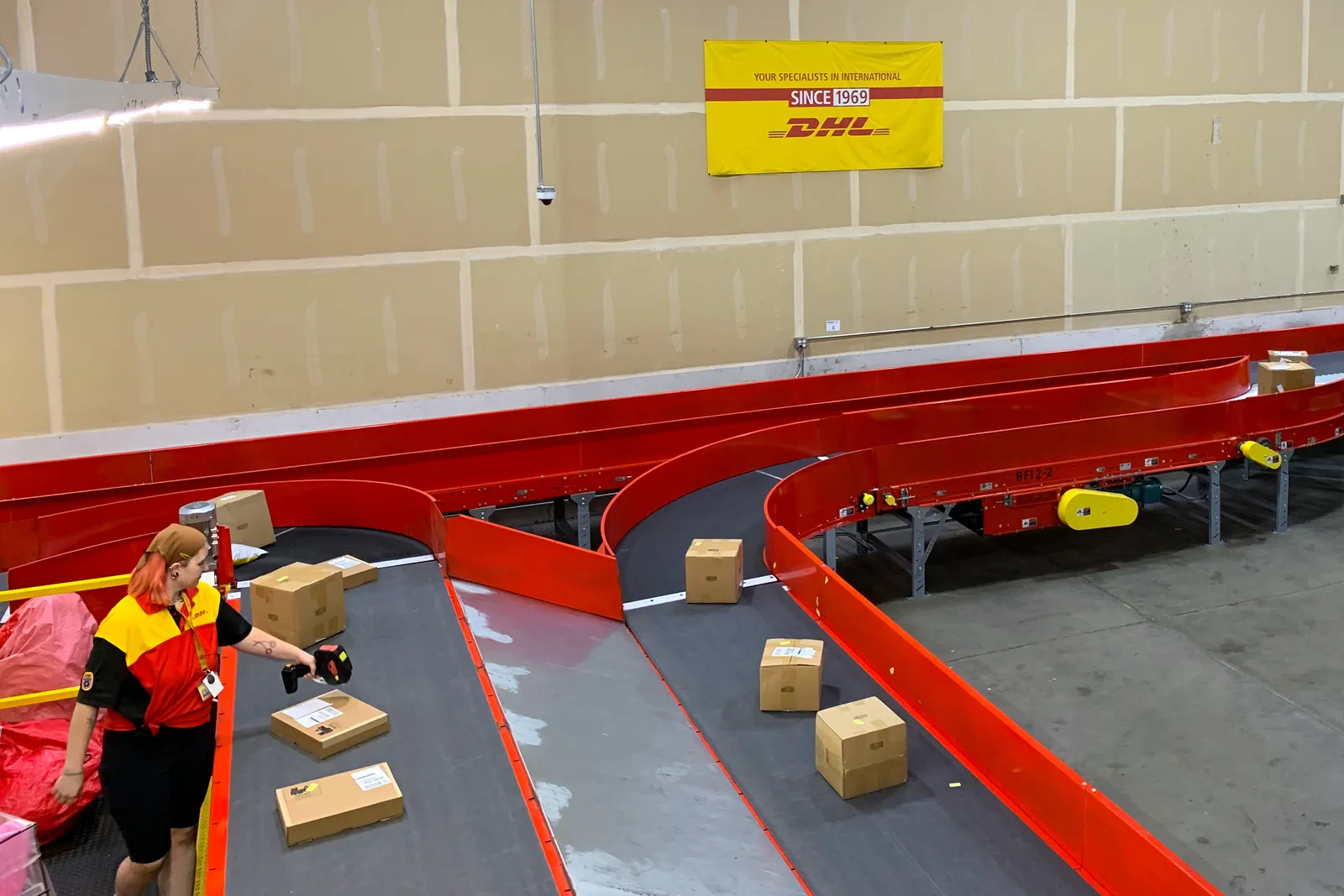
All packages are scanned and tagged on the moving belt for tracking purposes, ensuring efficiency and accuracy. On average, the facility handles about 4,000 shipments per day, with certain days, like Mondays, being heavier.
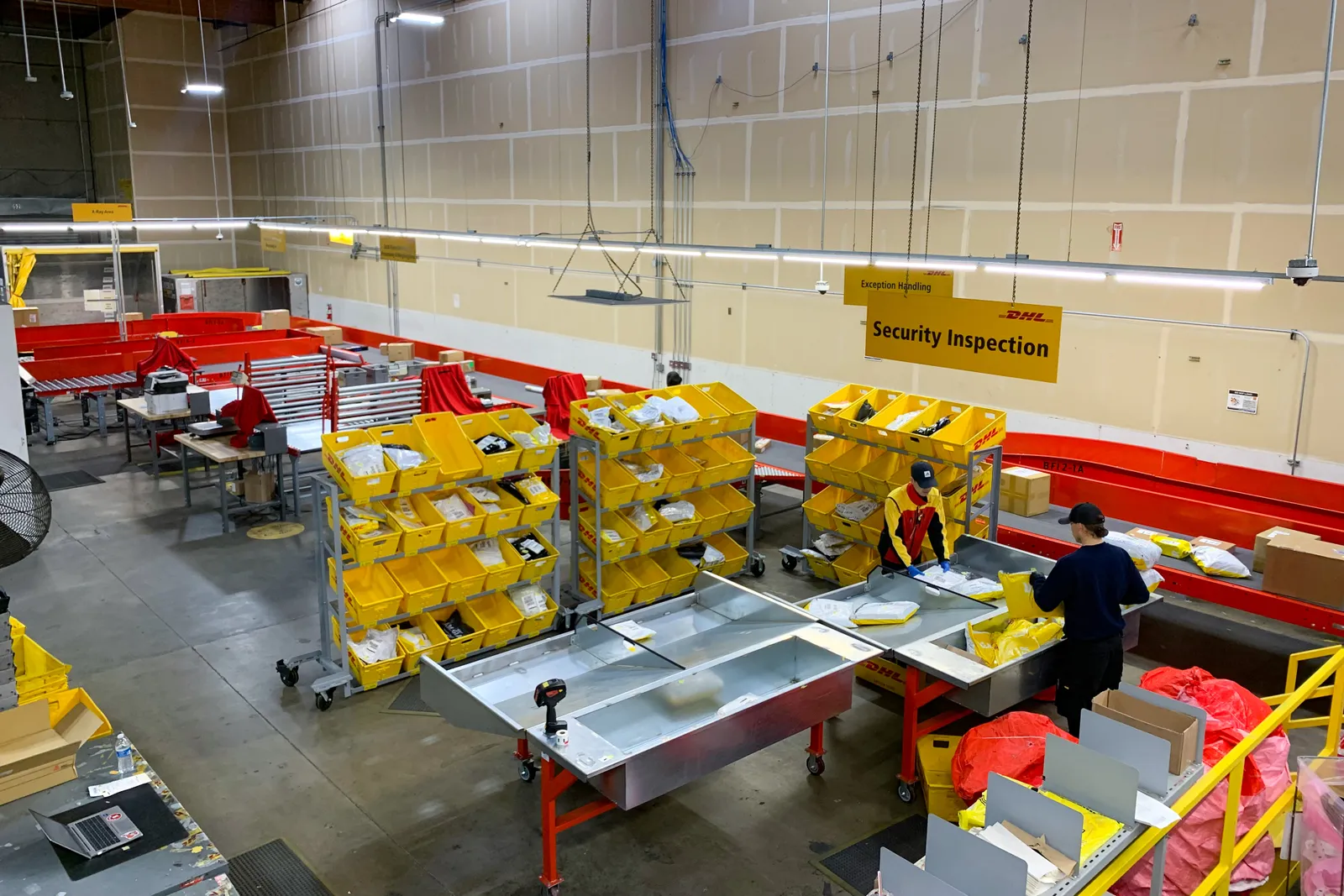
Seventy-eight people work at the facility, including couriers, supervisors and managers, operations agents and IT staff. This area is also where bags of mail are stored.
DHL’s fleet is ready for loading and delivery
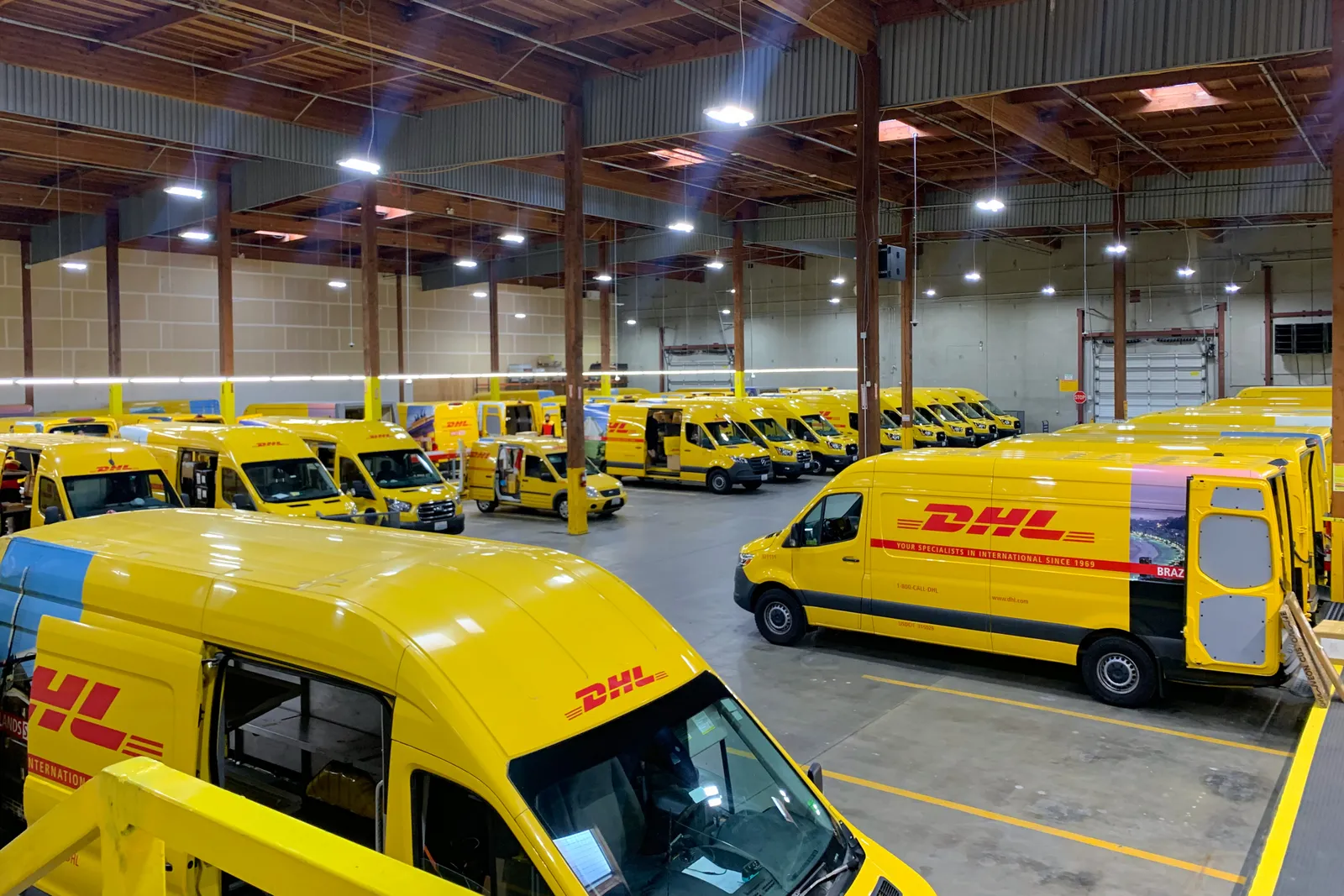
DHL’s Seattle Express Service Center, which was recently expanded, has parking on-site in the warehouse for its dozens of local delivery vehicles.
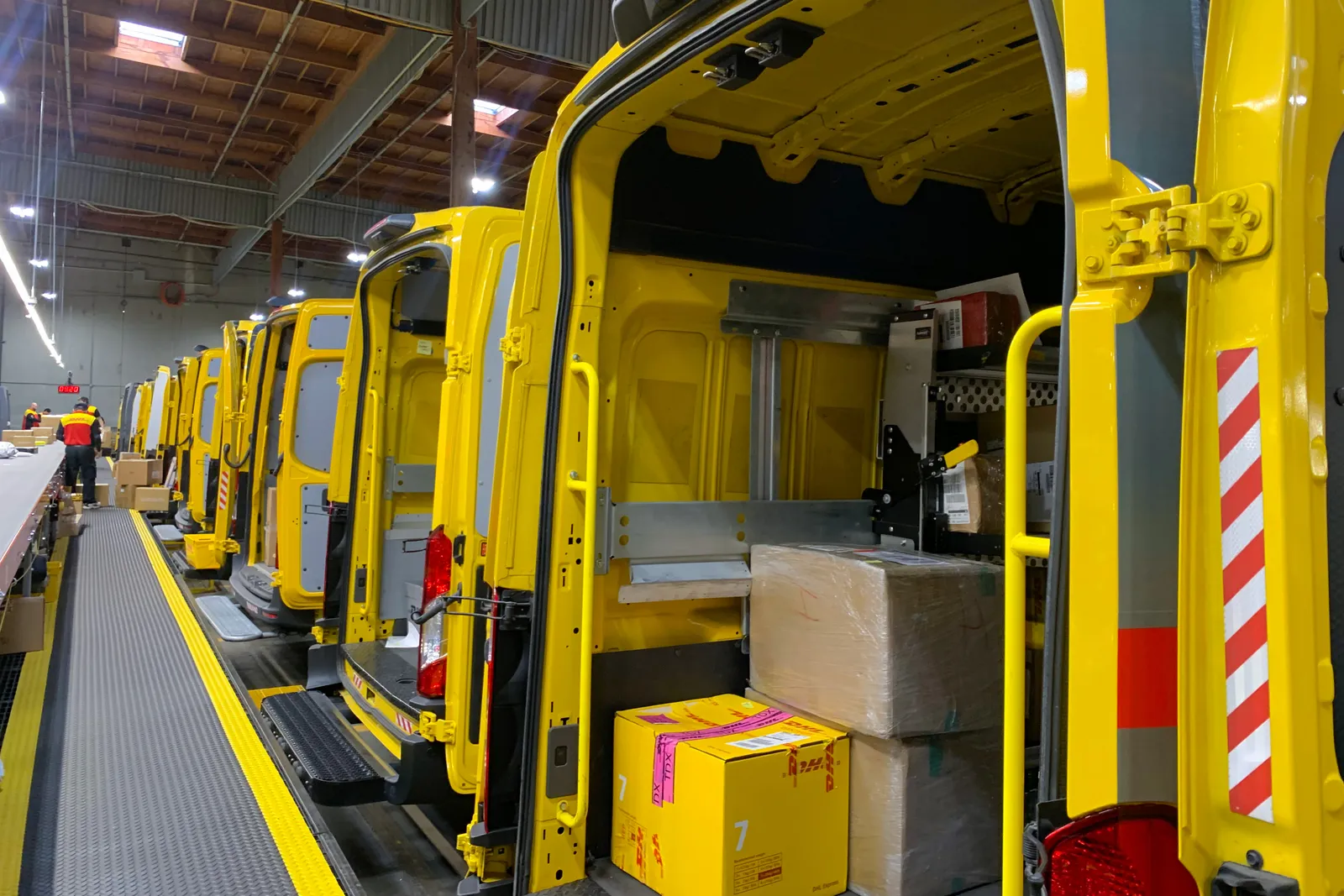
After being scanned and tagged, the packages continue to move down the conveyor belt, and couriers place them into delivery vehicles. The facility employs 65 couriers, who are also cross-trained for other tasks, like sorting.
All packages are packed and placed into the vehicles for delivery to their final destinations.
Visuals Editor Shaun Lucas contributed to this story.



